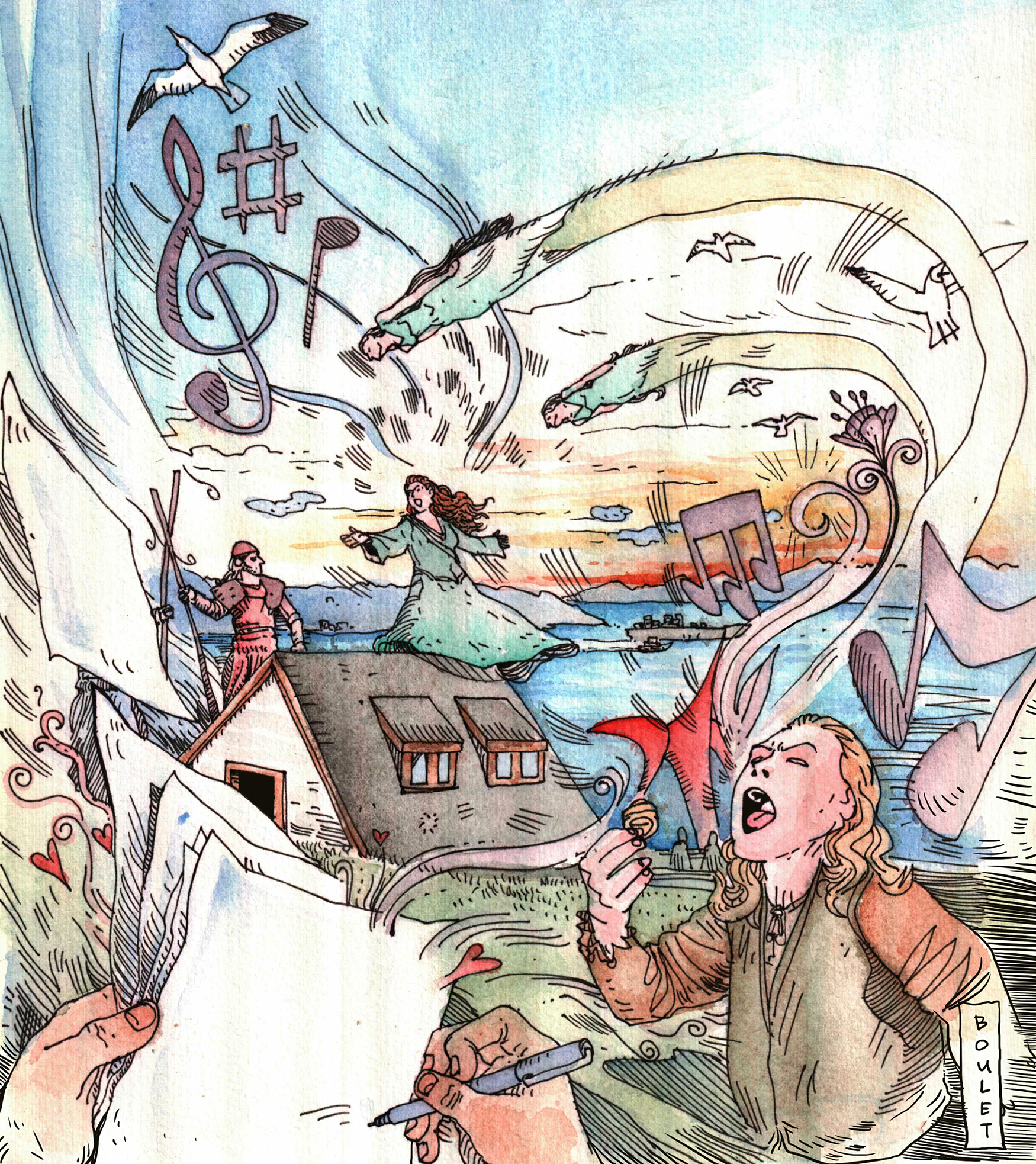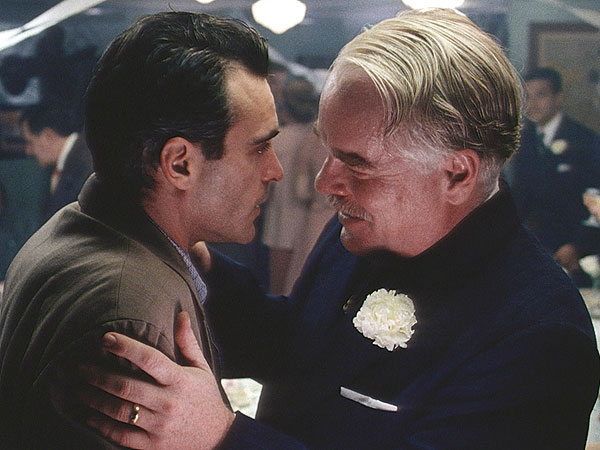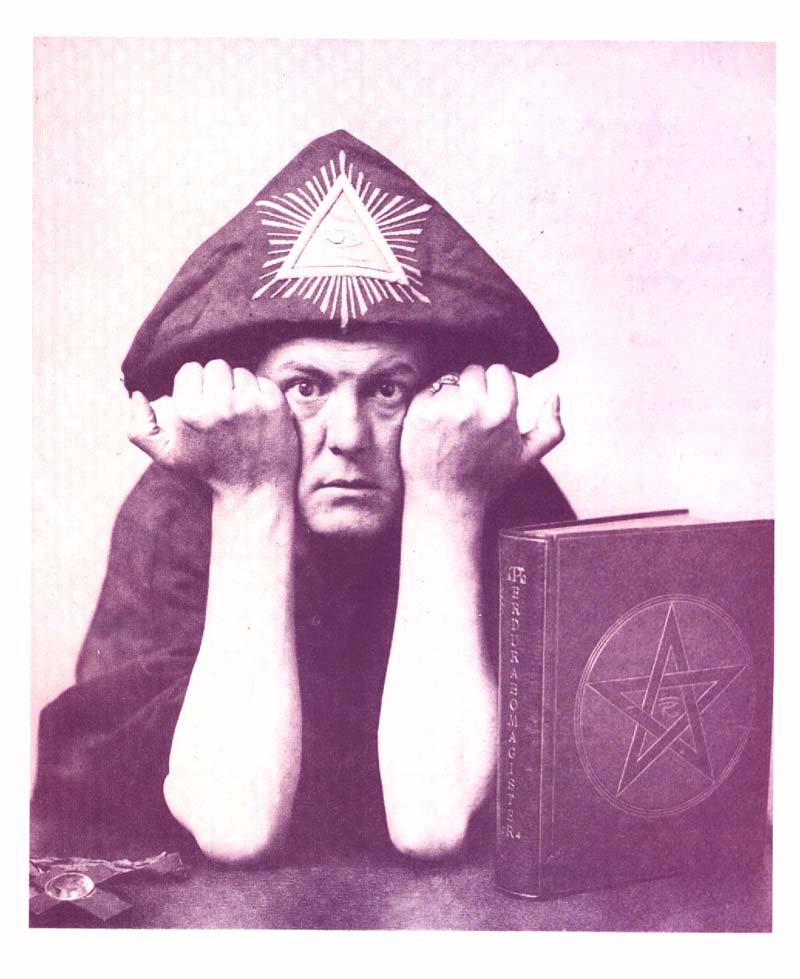WEDNESDAY, JUNE 1
Johan Primero 7 p.m., Everett
Ritual is at the heart of Johan Primero, a routine but enjoyable rom-com written and directed by a German named Johan (last name: Kramer) about a Spanish soccer fan also named Johan (José Luis Adserías, a dead-ringer for an older, chubbier Jonah Hill) who’s obsessed with routine. Movie Johan believes that the 50 laps he drives around the stadium of legendary FC Barcelona, his favorite squad (duh), are responsible for its success. Why he believes this is complicated and divorced from logic, but has to do with the death of his father, who now sits shotgun in an urn. Johan’s daily habit brings him into contact with his espresso-serving best friend, a park-bench-sitting, Zen-koan-spouting sage; and, as required by the bylaws of all Judd Apatow man-child movies, eventually a sympathetic pixie (this one has an eyepatch!), whose introduction augurs the movie’s central question: Now that he’s found a woman willing to put up with him, will Johan still put futbol (and ritual) first? CALEB HANNAN (Also: Admiral, 9 p.m. Mon., June 6.)
The Last Mountain 7 p.m., Pacific Place
A grueling barrage of geologic plunder, union busting, sociopathic official indifference (hey, why not put a toxic-sludge lake next to an elementary school?), and worse, this environmental exposé confirms every awful suspicion ever raised about the coal industry. Trouble is, the news is so bad and so plentiful that The Last Mountain may have you looking for the nearest exit (or a razor blade) instead of a way to register your outrage. Director Bill Haney approaches the subject from the perspective of a small West Virginia community, where a handful of citizens takes a stand against Massey Energy—currently in the news for a damning federal report on last year’s mining explosion victims—to save a local peak from the monstrously thorough process called “mountain removal mining.” It all begins to play like a campaign film once activist Robert Kennedy Jr. joins the fight, but scenes of him sparring with double-talking Big Coal flunkies provide relief from visits to cancer-decimated towns and the frequent, stats-heavy, PSA-style intertitles. The staggering disregard for life on display here is eye-opening and infuriating, and Haney juxtaposes it effectively with scenes of Appalachia’s lush countryside and homegrown protests. But before an encouraging wind-power segment arrives in its last reel, Mountain threatens to become a desensitizing loop of the corporate ethos—grab everything you can until somebody makes you stop—writ large. MARK HOLCOMB (Also: 4 p.m. Thurs., June 2.)
Blinding 9 p.m., SIFF Cinema
Is it possible to make a movie about blindness? It’s a monumental, paradoxical challenge to visually depict sightlessness, but Canadian filmmaker Steve Sanguedolce takes a stab with this documentary about “the beauty and curse of vision.” The movie explores the lives and psyches of three real people—a writer who slowly lost his vision starting at the age of 18; a lesbian police officer from Toronto; and a pilot from the Canadian Air Force who served in Rwanda and Bosnia—using Errol Morris-style reenactments and stock footage. Sanguedolce painstakingly hand-colored each frame of the 16mm film, giving it a damaged, distorted aesthetic. The three subjects, meanwhile, remain faceless behind the camera, recounting in mostly monotone voices the most traumatic events of their lives, such as the time the cop discovered an abandoned newborn frozen to the pavement in a puddle of afterbirth in the Canadian winter (a sight no one would wish to recall). Unfortunately, after sitting through the mercifully brief 72-minute film, viewers may well wish they were both blind and deaf. KEEGAN HAMILTON (Also: 4:30 p.m. Fri., June 3.)
THURSDAY , JUNE 2
[PICK] Snow White 4 p.m., Neptune
We don’t think of Gustav Mahler, with his immense, all-embracing symphonies, as a dance composer. But Angelin Preljocaj set his 2008 ballet Blanche Neige to beautifully chosen excerpts from the composer’s opulent, hyperdramatic scores, then filmed it. The result is ravishing beyond description. Don’t think Disney; in this dark and haunting version, Snow is exiled, but followed by her Prince Charming, whom she meets early on, and falls in with a sybaritic, lotus-eating troupe of pond-dwelling quasi-naiads before she meets the seven miners (who dance not on the floor but against a rear wall, suspended by cables) and eats the apple. Her story ends happily, but the evil queen gets the first and last word: embittered in the chilling opening, in which her child is taken from her, and punished gruesomely in the denouement. Preljocaj’s choreography looks, to these dance-untutored eyes, marvelously fresh and inventive on a step-by-step basis, and it’s matched stunningly to the score (recordings by several top conductors and orchestras). If you have the slightest interest in dance, please don’t miss it. GAVIN BORCHERT (Also: 6:30 p.m. Sun., June 5.)
Killing Bono 6:30 p.m., Neptune
Yes, that Bono, the Irish schoolboy who, with his mates in the late ’70s, formed a band that eventually became U2. Also in school with him was aspiring rocker Neil McCormick, whose musical path eventually fizzled to much less acclaim. Now his 2004 memoir of their divergent careers, set mostly in the ’80s, has been very loosely adapted into a seriocomic tale of brotherly rivalry within a band and celebrity stalking outside it. The first part, an amiable style survey of all that was wonderful/ridiculous about the English music scene in the Thatcher era, works much better than the second, which flirts with Mark David Chapman-John Lennon territory. Since McCormick later got Bono to pen the introduction to his memoir, and collaborated with him on a separate U2 book, the singer is treated pretty generously—though in few scenes (played by Martin McCann). The selfish and generally bungling side of musical ambition we see in Neil (Chronicles of Narnia pretty boy Ben Barnes, conveying both charisma and arrogance), who seems determined to destroy his brother Ivan’s life as well. These two Irish lads borrow money from a gangster to fund their quest for a record deal in London, where they encounter all manner of colorfully comic and devious characters. Killing Bono is lightweight, nostalgic fun. And, obviously, no one gets killed. BRIAN MILLER (Also: 1:30 p.m. Sun., June 5; and Admiral, 9:15 p.m. Weds., June 8.)
[PICK] Amador 7 p.m., Pacific Place
Marcela (Magaly Solier) is a woman held captive. A Latin American immigrant in Madrid, she finds herself trapped in a stagnant relationship with Nelson (Pietro Sibille), with whom she shares an equally stagnant business selling stolen flowers. Unbeknownst to him, she also carries his unborn child. The need for a new refrigerator to support the couple’s business forces Marcela to take a job caring for Amador (Celso Bugallo), a brusque, bed-ridden elderly man who offers Marcela the sort of wisdom, insight, and life lessons that her dim-witted boyfriend never could. But when tragedy strikes, Marcela must choose between truth and her next paycheck. She opts for the latter, and what ensues is an immigrant drama and a story of personal maturation in the face of hardship. Directed by Fernando León de Aranoa, Amador borders on black comedy at times (emphasis on the black: think As I Lay Dying rather than Weekend at Bernie’s), but Solier’s subdued, dynamic performance keeps it firmly rooted in Marcela’s struggles. (Some may remember this fine Peruvian actress from Altiplano at SIFF last year.) And though the film leaves Marcela’s struggles largely unresolved, she and Amador remain bonded together. ANDREW GOSPE (Also: 1:30 p.m. Sat., June 4.)
[PICK] Fuck My Life 7 p.m., Harvard Exit
Ryan Reynolds? No, Jason Segel—no, Andy Samberg is who’ll be cast as the male lead when this Chilean film gets remade here. Clueless, neurotic, and obsessive, Javier’s made a mess of his on-and-off relationship with the perfectly lovely Sofia, which the film picks over in flashback. His best friend, straight-talking Angela, eventually slaps him out of it. But until then, he has to deal with, among others, his overly frank mother; a cougar bent on avenging her divorce; and, funniest of all, a nutjob supermodel with no filter. It’s pure rom-com formula, but pitched slightly higher than the usual Hollywood emotions. Redeeming novelty comes from lovely shots of Santiago and from director/screenwriter Nicolás López’s willingness to make Javier (Ariel Levy) and Angela (Andrea Velasco) faintly, and realistically, unlikable. The film works at being charming only hard enough to succeed—but, refreshingly, no harder. GAVIN BORCHERT (Also: Admiral, 1 p.m. Sat., June 4 and Neptune, 9:30 p.m. Tues., June 7.)
[PICK] Letters From the Big Man 9 p.m., Everett
We in the Northwest feel protective of the Bigfoot legend; whether you believe in Sasquatch or not, he’s our folklore icon to claim. Yet in one of the most audaciously oddball films at SIFF this year, set in the woods of Oregon, writer-director Christopher Munch makes Sasquatch his muse. The shy, gentle creature never speaks directly to forestry worker Sarah; but she begins to sense his presence as we, in turn, hear some of his murmuring advice. “Only with your own heart will you know us,” he intones, but Sarah’s nursing a broken heart. A former U.S. Forestry Service hydrologist turned artist, she takes a contract job with the feds to survey an old burn in the beautiful Klamath-Siskiyou region. It is, for her and Munch both, a kind of ecstatic Thoreauean paradise, a place to meditate on the abundance and resurgence of life. (She even does yoga, to the Sasquatch’s puzzlement.) As Sarah conducts her solitary research, then later types up her report in a cabin, the wonderful young New York stage actress Lily Rabe—daughter of playwright David Rabe and the late actress Jill Clayburgh—manages to command our attention in scene after scene without dialogue. Munch just has her work, exercise, and paint while we (and Sasquatch) develop a silent bond with Sarah. Though there’s also talk of logging and federal land-use policies, and even a love interest for her (no, not Bigfoot), she’s most at home in the woods. Note that Munch will attend all three screenings of this peculiar, remarkable film. BRIAN MILLER (Also: SIFF Cinema, 6:30 p.m. Fri., June 10 and 4:30 p.m. Sat., June 11.)
Norman 10 p.m., SIFF Cinema
The darkest teen comedy of SIFF 2011 goes to—drum roll, please—Norman, directed by Jonathan Segal and shot in Spokane. Dan Byrd plays Norman, that high-browed kid in English class who reluctantly shares his sharp insights on the novel of the week while the rest of the class is busy fiddling with gum on the underside of their desks. Norman is also broken. Back home, away from high school, he’s burdened with the task of serving as caretaker for his terminally ill father (Richard Jenkins, Oscar-nominated for The Visitor) and coping with his mother’s recent death. And then—in the whirlwind of faking his own cancer, finding a girlfriend (Emily VanCamp) who loves him for his “bravery,” and being selected by his teacher (Adam Goldberg) to present an inspirational speech on his supposed illness—it hits him that he’s gotten himself into quite a predicament. While Norman is faced with questions of how he’ll get himself out of this lie, viewers are faced with questions of whether to laugh or cry in response to the offbeat tale and gloomy whistling of composer Andrew Bird. COLIN GORENSTEIN (Also: Neptune, 1 p.m. Sat., June 4.)
FRIDAY, JUNE 3
Mamas & Papas 11 a.m., Pacific Place
There’s a good movie that could have been made out of this Czech film’s various-stages-of-parenthood conceit. It’s too bad, then, that the filmmakers’ arrogance prevents such a product from unveiling itself onscreen. Mamas & Papas follows three familial entities who hail from very different class strata and are approaching childbirth from three very different angles. Had the film been limited to this trio of story lines (or, better yet, just those of the two brothers and their partners), it would have been fine. But instead, it throws in a middle-aged physician who’s grappling with a tragedy involving her only child. Only that tragedy never gets fully explained—a critique that can be applied to several plot points that fail to be satisfactorily fleshed out—and a slew of chronological tricks are more confusing than innovative. Buried beneath this clutter, directed by Alice Nellis, is a very poignant, cautionary message: that differing views on procreation can be a toxic, if not outright destructive, force in a relationship. But Mamas & Papas is too busy wasting precious screen time on leisurely shots of the grief-stricken physician scuba-diving to fulfill its promise. MIKE SEELY (Also: 9:30 p.m. Tues., June 7 and Kirkland, 8:30 p.m. Sat., June 11.)
Juan 4:30 p.m., Neptune
English baritone Christopher Maltman—who, btw, made his U.S. debut at Seattle Opera in 2001—sings the title role in Kasper Holten’s liberally truncated modern-day version of Mozart’s Don Giovanni. He plays Juan, plausibly, as a seducer and female button-pusher (he cries during his Act 2 serenade, the louse), rather than, as is the trend these days, as a two-dimensional sociopath (his murder of a seducee’s father at the beginning is here staged as an accident). The libretto’s reset in vernacular English by Maltman himself and Henrik Engelbrecht—never very gracefully, due largely to their insistence on rhyme and on wedging in edgy profanity. Leporello—here not Juan’s dogsbody, but a videographer documenting his sexual conquests for some sort of conceptual art project—gets the worst of it, with lines like “Stupid fuck is taking piss/No boss treats good man like this.” (Later he’s asked to sing melismas on the intractable word “works.” Try it yourself.) The challenge of any Don Giovanni, especially acute in an updating, is its supernatural finale, in which the murder victim returns as a ghost. And this is just where Juan—until this point so insistently, not to say self-consciously, naturalistic—necessarily falls apart, with an attempt to reinterpret the ghost’s voice as that of Juan’s own hallucinating guilty conscience. Even a car chase doesn’t quite prevent a sense of anticlimax; the film’s actual emotional dénouement is the earlier suicide of the abandoned Elvira, an entirely convincing tweak of the opera’s original plot. GAVIN BORCHERT (Also: Admiral, 6 p.m. Sun., June 5.)
[PICK] Salvation Boulevard 9:15 p.m., Egyptian
Back in 2001, George Ratliff made a fine documentary called Hell House, about a Texas evangelical church’s elaborate haunted house that warned teens against abortion, drugs, godlessness, and all manner of of sin. It could’ve been a snide, cheap takedown, but it wasn’t. These people were putting on a show. (In retrospect, the doc was like Glee for Bible-thumpers.) The director returns to a similar milieu in this dark yet generous comedy set in and around a suburban megachurch. Continuing his late-career transformation into a real actor, Pierce Brosnan plays Pastor Dan, whose grand vision of an integrated church-real estate development is threatened by a mishap with a gun. Married into his flock is meek former Deadhead Carl (Greg Kinnear, also getting better with age), who gets caught in Pastor Dan’s coverup and conspiracy. Without spoiling any details in the subsequent farce (also peopled by Jennifer Connelly, Marisa Tomei, Ed Harris, and Jim Gaffigan), I’ll commend the Texas-raised director for Salvation Boulevard‘s highly forgiving allowance for zealotry, doubt, stupidity, and transgression. Pastor Dan isn’t an evil hypocrite but a pompous nitwit who genuinely believes his glowing red cell-phone caller ID (“Unknown”) is coming from Satan. And the humble, not-smart Carl emerges not as a bitter atheist but a kind of pilgrim with a minivan who always stops to help his enemies. BRIAN MILLER (Also: Admiral, 1 p.m. Sun., June 5.)
SATURDAY , JUNE 4
PressPausePlay 4 p.m., Kirkland
In their evenhanded Swedish documentary, filmmakers Victor Köhler and David Dworsky neatly divide contrary opinions on the digital revolution in music, books, and movies. (Intertitles read “Technology Is Great” and “The Craft Is Dead.”) Thanks to myriad new technologies, more people can now do more art in more ways. But, Köhler and Dworsky ask, is that demotic trend bad for “serious” musicians? Should art be an elitist business? Among those interviewed here, young film director Lena Dunham (Tiny Furniture) notes how easy moviemaking has become, citing the mumblecore movement in particular. Reykjavik composer Ólafur Arnalds talks about interacting with his fans via the Internet. Marketer/author Seth Godin tells how he made money by deciding to self-publish online. But the more interesting and introspective points are the cons—e.g., Moby declaring that the public is becoming more comfortable with mediocrity. Author Andrew Keen (The Cult of the Amateur) provides the darkest view, declaring that the arts have now devolved into “cacophony and self-opinion.” Studded with performance clips of musicians like Robyn, Lykke Li, and Hot Chip, PressPausePlay celebrates live music. Though, in the end, it’s hard to disagree with the blunt assertion of Pitchfork music critic Amy Phillips—”There are talented people, and there are not talented people.” ERIN K. THOMPSON (Also: SIFF Cinema, 9:15 p.m. Tues., June 7 and Neptune, 4:30 p.m. Fri., June 10.)
Belle Epine 8:30 p.m., Admiral
Prudence is a girl up to no good. In the harsh opening scene of Rebecca Zlotowski’s Belle Epine, she’s forced to undress in front of a pissed-off store manager who suspects her of shoplifting. At 17 Prudence (a world-weary Leá Seydoux, with dark, shadowy circles under her eyes), is essentially living on her own. Her mother appears to be dead; her father’s disappeared to who-knows-where; and her older sister checks in on her only sporadically. In desperate need of companionship, she latches onto fellow delinquent Maryline, who introduces her to a thrilling Parisian underworld of midnight motorcycle racing, beer drinking, and casual hookups. Prudence begins a rough-hewn romance with one of the racers, but still seems angry and dead in the eyes. She only appears to show emotion with the racer’s mother, in a telling, grief-tinged scene. Zlotowski sensitively explores her heroine’s abandonment, loneliness, and confusion. Yet the film only draws into focus when a fatal accident shocks Prudence back to her senses—and makes us realize what actually happened to her mother. ERIN K. THOMPSON (Also: SIFF Cinema, 4:30 p.m. Thurs., June 9 and 9:30 p.m. Sat., June 11.)
[PICK] On the Ice 9:30 p.m., Harvard Exit
If I said “Eskimo hip-hop crime tale,” would that send you running to the nearest sunny beach? Shot on location in far-northern Alaska, with a native cast and writer/director (Andrew Okpeaha MacLean), On the Ice is a marvel of concentrated, classical storytelling. The flat, snowy landscape strips away all but the essentials from its tale: Two teens, best buddies from very different families, have a bloody encounter on a hunting trip. They lie to their parents and community about it; and that lie inexorably catches up with them. A corpse must be hidden, crack is smoked, and college-bound Qalli (Josiah Patkotak) begins to waver in his determination to escape a culture of poverty, alcoholism, and teen pregnancy. Blood and guilt seep into the pure, white snow. You could call the film an ethnodocumentary noir, since MacLean includes elements of Iñupiaq language and culture. Living in cheap housing in Barrow, the natives have uneasily adapted to an ancient/modern existence, hunting seals from their snowmobiles on retreating ice, cell phones ringing in their pockets. The film’s like a meeting of River’s Edge and The Fast Runner. Note: MacLean studied at the UW, co-founded local theater company Stickfigure Productions, and today lives in New York; he’ll attend the first two screenings. BRIAN MILLER (Also: 11 a.m. Sun., June 5; and Kirkland, 9 p.m. Fri., June 10.)
The Intruder Midnight, Egyptian
Similar in plot to Snakes on a Plane but lacking the comforting, saving grace of Samuel L. Jackson, the Thai-made The Intruder chronicles a deathly night in which an apartment building is besieged by a horrifying number of vicious cobras. Among the potential victims are a snotty rock band, some video-game nerds, a little girl in an angel costume, and her mother. Our hero is Sadayu, a buff young EMT whose ex-girlfriend, Nin, happens to be the building’s owner. Once the snakes start swarming, Nin’s crazy, bug-eyed Aunt Prai warns of ancient gods and family curses (“Stop making sin over and over”), limbs are severed, and eyeballs pop out of sockets. The Intruder is overly full of disgusting death scenes, and eventually the fact that the dialogue is all shrieking, no speaking, wears upon on your ears. There are moments of genuine tension, as when automatic elevator doors close so slooooowly as the fast-approaching cobras slither toward the gap. And the people don’t always behave better than the snakes. When Sadayu’s got only two shots of anti-venom serum left in his bag, someone pulls a gun, and things get really hysterical. ERIN K. THOMPSON (Also: Neptune, 9:30 p.m. Wed., June 8.)
SUNDAY, JUNE 5
[PICK] My So-Called Enemy 6:30 p.m., Harvard Exit
Teenagers talking about the endless Israeli-Palestinian conflict. If that doesn’t send chills up your spine, then you haven’t spent enough time listening to teenagers talk about more trifling topics, like their hair or reality TV. Yet Lisa Gossels’ second documentary—her first was about the Holocaust; let no one ever accuse her of avoiding subjects that are monumental bummers—is neither trivial nor depressing. Following a half-dozen Palestinian and Jewish girls who meet at a let’s-promote-cultural-understanding summer camp in post/9-11 New Jersey, Enemy does for the viewer what the camp hopes to do for the girls: It places specific names and faces onto a conflict often ignored on the front page or evening news. What’s more, Gossels actually does the hard work of following the campers for another seven (seven!) years after they leave the lakeside idyll in 2002. Which means that rather than end on one of the film’s many poignant, if easily reductive moments (like when the Israelis dance while draped in a keffiyeh, that loaded symbol of Palestinian resistance), Gossels’ camera is still there when they return back to the messy reality from which they came. CALEB HANNAN (Also: 4:30 p.m. Mon., June 6.)
[PICK] Marathon Boy 7 p.m., SIFF Cinema
Another one of those excellent HBO docs, to be aired later this year, Gemma Atwal’s Marathon Boy follows a Bengali street urchin who becomes a regional folk hero and media sensation by the age of four, by which time he’s run 48 (!) marathons under the guidance/exploitation of his coach. Filmed over five years, little Budhia is fatherless; and his mother agrees to adoption by his new mentor, Biranchi Das, who runs a judo academy/orphanage. Das knows little about distance running and a lot about publicity; TV crews follow the pair everywhere, particularly as the Bengali child-welfare agency tries to retrieve the lad. Any Seattle parent (or distance runner) will be aghast at Budhia’s feats, which include a 42-mile ultramarathon in 90-degree heat that takes seven hours. Clearly, he has no notion of consent; but the film fairly weighs both sides of Das’ cruel/kind behavior toward Budhia. Theirs is like a relationship out of Dickens. And their story is like that of Slumdog Millionaire, only without the fairy-tale ending. Much as you want to side with the government against Das, the boy’s mother reasonably asks, “What about all the street kids they ignore?” There’s no HBO documentary for them. BRIAN MILLER (Also: Egyptian, 4:30 p.m. Wed., June 8.)
Black Field 9:15 p.m., Pacific Place
Black Field takes place in mid-17th-century Greece under Ottoman rule, when a wounded soldier (Cristos Passalis) arrives at a convent on the brink of death. Anthi, a young nun, nurses him back to health. In the process, she tests the foundation of her faith, falls in love, and schemes an escape. As the two lovers flee, Anthi (Sofia Georgovassili) reveals a secret she has harbored for years: She is, in fact, a he. Like the soldier, a Christian conscripted into the Turkish army, Anthi has led a double life. Only in the latter’s case, the convent provided shelter from forced military service. Directed by Vardis Marinakis, Black Field is an intimate portrait of one soul’s wavering between the the sacred and the profane. It’s also a love story with minimal dialogue that beautifully captures the small moments of distress and discovery. KRISTY HAMILTON (Also: 4:30 p.m. Mon., June 6.)
Oliver Sherman 7 p.m., Pacific Place
Grab some popcorn and watch the slow trajectory of shit hitting the fan in Oliver Sherman. This affecting Canadian drama, directed by Ryan Redford, first appears to be a heartwarming reunion between two estranged veterans from an unnamed foreign war, then becomes something much bigger. Sherman—that’s his first name, which the title inverts—arrives at the home of Franklin (Donal Logue) and his wife, Irene (Molly Parker), bringing with him post-traumatic stress disorder. And a knife. In combat seven years before, we learn via flashback, head-shot Sherman (Garret Dillahunt) was rescued by Franklin. Now Franklin must again rescue his brain-damaged old comrade (who scrambles his own name), opening his door without hesitation and providing him a roof over his head. The tension mounts as we—along with Franklin and Molly—begin to grasp the extent of initially silent Sherman’s injuries. As his tantrums mount and the mood turns volatile, Oliver Sherman is tense, illuminating, and sad. COLIN GORENSTEIN (Also 11 a.m. Sun., June 5.)
MONDAY, JUNE 6
The Off Hours 7 p.m., Neptune
Better known as a producer of several locally made indies, Megan Griffiths steps back behind the camera for this melancholy study in small-town discontent. Somewhere in her aimless 20s, Francine (Amy Seimetz) lives with her stepbrother and works as a graveyard-shift waitress in a forlorn diner owned by an alcoholic painter. Another waitress turns tricks with the truckers. No one seems able or willing to escape the sodden inertia of this hopeless hamlet (what looks to be North Bend), and it takes a visitor/suitor (Ross Partridge) to jar Francine out of her funk. It also takes a while to tease out the relationships among Griffiths’ ensemble. The film is stronger on mood (dimly lit and Raymond Carveresque) than story—essentially a series of vignettes and half-realizations, well acted and some of them quite affecting. Handsomely shot by Benjamin Kasulke, The Off Hours feels considerably long than its 94 minutes. Its story, boiled down, is Francine’s belated reconsideration of her stalled, “pathetic life” in a shitty small town. A dreadful final ballad presents as triumph what most viewers will find to be long overdue. (Look for Lynn Shelton and Sean Nelson in small, effective roles.) BRIAN MILLER (Also: 4:30 p.m. Tues., June 7.)
TUESDAY, JUNE 7
Old Goats 7 p.m., Egyptian
Taylor Guterson, son of local novelist David, turns an affectionate eye to the Northwest geezer in this gentle comedy about the indignities of aging. Meeting at a weekly coffee klatch for Bainbridge’s over-70 set (no girls allowed!), three old goats from different social strata develop an unlikely friendship. One’s a married, golf-playing, sports-car-driving businessman recently forced into retirement. Another is a salty octogenarian World War II vet and (still) devoted womanizer. The third is a shy bachelor car mechanic, just fired, who lives on a squalid sailboat in Eagle Harbor. Theirs is the common tragedy—mainly played for laughs—of losing one’s vocation, one’s purpose in life. There’s talk of sailing adventures, online dating, and a condo in Palm Springs, but these three live in common terror of the question, “What’s next for you?” They know damn well what’s next! And they’re determined to avoid it for as long as possible. Likewise, Old Goats meanders along at an unhurried pace; it’s an authentic slice of Northwest regionalism not often seen on screen—one that also doesn’t insist on a cute, pat resolutions. When a duck-hunting trip proves hopeless, one guy declares, “Why don’t we just get a chicken at Costco?” Works for me. BRIAN MILLER (Also: Admiral, 4:30 p.m. Fri., June 10.)








